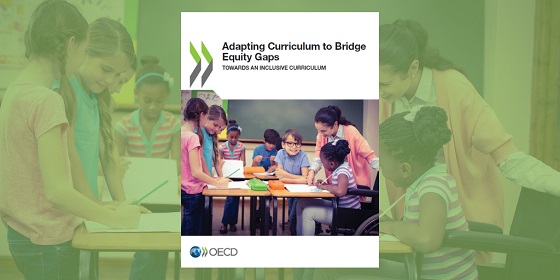OECD within its work on the ‘Future of Education and Skills 2030’ also focuses on curricula, both redesigning and implementing, to meet the challenges of the 21st century. Recently released the comprehensive curriculum analysis through the co-creation of new knowledge with a wide range of stakeholders including policy makers, academic experts, school leaders, teachers, NGOs, other social partners and, most importantly, students. Major trends in curriculum innovations towards a “21st century curriculum” have emerged as 4 types:
digital curriculum,
personalised curriculum,
cross-curricular competencies, and, content-based curriculum,
flexible curriculum.
While these innovations hold the promise to enhance student learning and well-being, and to make learning more relevant for their social and future life, countries and schools also face the complex realities of equity gaps among students. The report takes a realistic look at equality, equity and inclusion in curriculum. It examines how curriculum can be adapted to meet specific needs of diverse learners, particularly vulnerable students.
Find out more here: https://www.oecd.org/education/2030-project/curriculum-analysis/
@OECDEduSkills (OECD Education and Skills)
